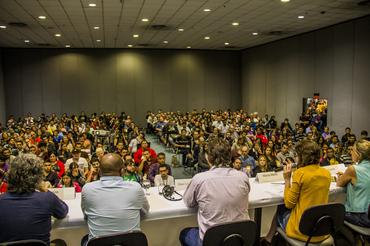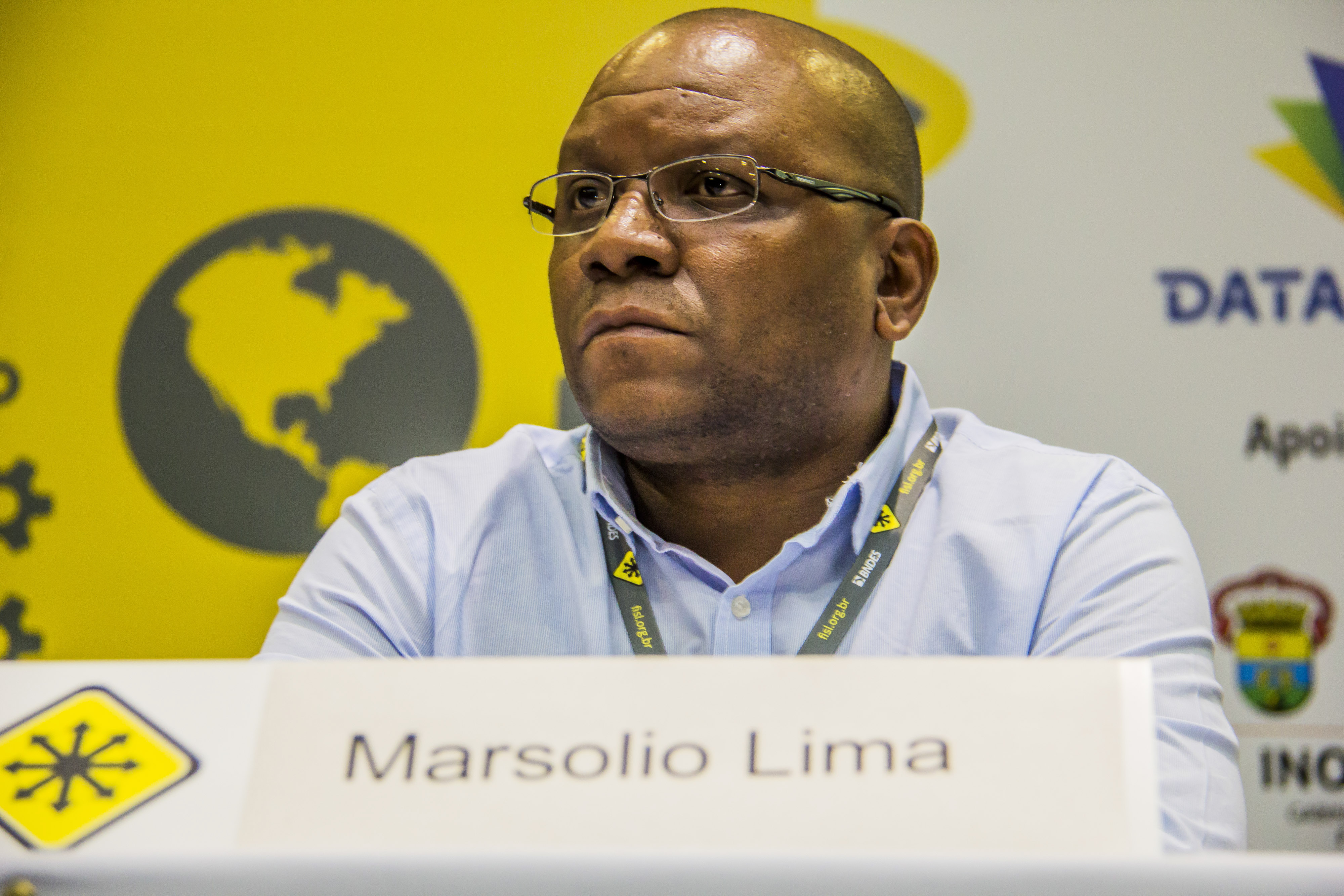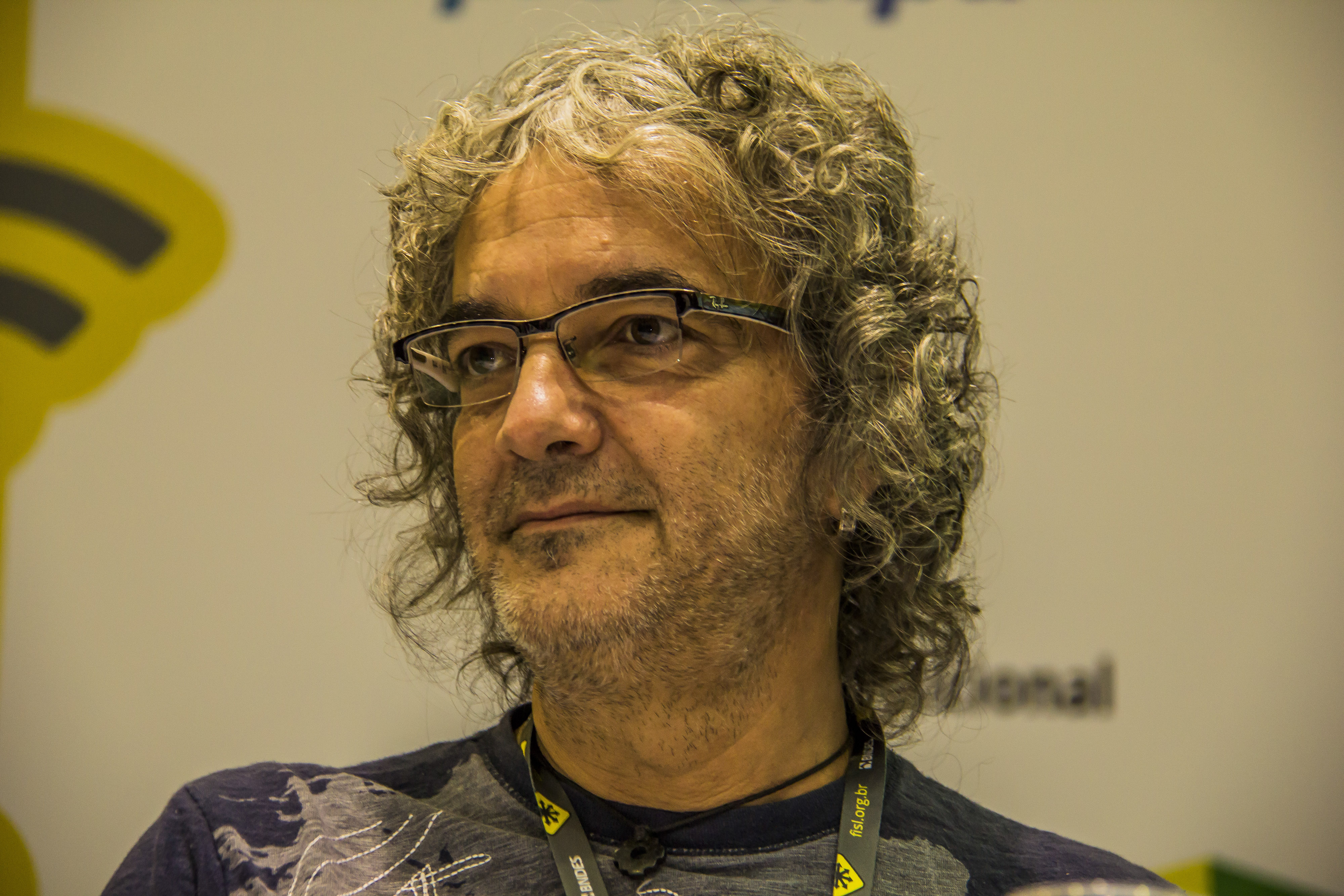
Speech about the accomplishments of the Internet in Brazil crowded the theater in the International Free Software Forum.
The general feeling among the Free Software community is to celebrate the important accomplishments of the Brazilian Civil Rights Framework for the Internet. The moment, however, still demands attention and was the subject of a debate that took place at the International Free Software Forum (FISL). The speech "Approval of the Brazilian Civil Rights Framework for the Internet and their consequences for society" brought together various specialists to the audience.
Despite being celebrated by everybody, it still is necessary to be attentive, because of details that need to be regulated henceforth. According to speaker Maria Melo, activist who defended the approval, the new law is a guarantee of democracy and freedom to all citizens, but the moment is not for relaxing.
We have a series of challenges ahead. We need keep civil society united and alert because after approval and sanction, we still have questions that need to be regulated and this will be done through public engagement. It is paramount that people understand this is not a government project, but an action done by everybody, she said.
One of the keypoints in the Brazilian Civil Rights Framework for the Internet is espionage. Free Software Strategic Coordinator at Serpro Deivi Lopes Kuhn advocates Brazil keep discussing this issue, preventing itself and fighting against Internet surveillance.
- The United States can't think they have the legal right to spy on every citizen in the world. Dispute isn't only legal, but also technical. The discussion of the HTML5 standard may be a limiting factor in Internet freedom. Companies may control your access to content if they are the owners of the copyrights of this content. So, this is a very serious thing, that impacts everybody, said Deivi Lopes Kuhn.
Maria melo also remembered the importance of the collaborative process not only when programs are ready and available in the market, but also before it.
- The ideal scenario is having tests in the very system of the community, I mean, people participating to test codes before they get to the final user, said the activist.
Marcelo Branco was also one of the speakers. He acted in the approval, and worked also in the first draft, when no one would speak about Internet regulation in Brazil. However, he believes a few points need to be observed and altered, to avoid contradiction.
The article 15 didn't stood the way we wanted, and we wanted it to be vetoed. It forces the keeping of logs by corporations. Depending on the regulamentation, it can be contradictory with President Dilma Rousseff rethoric and with the fight for defense of privacy of net users. It may enable a mass surveillance of brazilians. We're mobilized to neutralize the negative effects of this article, said Marcelo Branco.





Photos: Guilherme Almeida

















